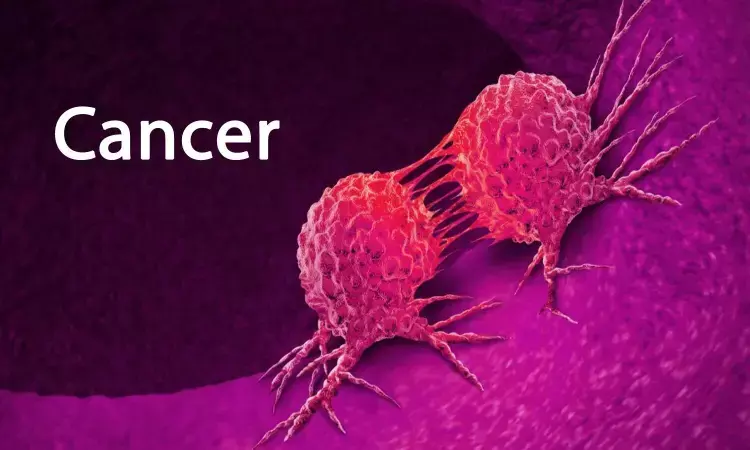- Home
- Medical news & Guidelines
- Anesthesiology
- Cardiology and CTVS
- Critical Care
- Dentistry
- Dermatology
- Diabetes and Endocrinology
- ENT
- Gastroenterology
- Medicine
- Nephrology
- Neurology
- Obstretics-Gynaecology
- Oncology
- Ophthalmology
- Orthopaedics
- Pediatrics-Neonatology
- Psychiatry
- Pulmonology
- Radiology
- Surgery
- Urology
- Laboratory Medicine
- Diet
- Nursing
- Paramedical
- Physiotherapy
- Health news
- Fact Check
- Bone Health Fact Check
- Brain Health Fact Check
- Cancer Related Fact Check
- Child Care Fact Check
- Dental and oral health fact check
- Diabetes and metabolic health fact check
- Diet and Nutrition Fact Check
- Eye and ENT Care Fact Check
- Fitness fact check
- Gut health fact check
- Heart health fact check
- Kidney health fact check
- Medical education fact check
- Men's health fact check
- Respiratory fact check
- Skin and hair care fact check
- Vaccine and Immunization fact check
- Women's health fact check
- AYUSH
- State News
- Andaman and Nicobar Islands
- Andhra Pradesh
- Arunachal Pradesh
- Assam
- Bihar
- Chandigarh
- Chattisgarh
- Dadra and Nagar Haveli
- Daman and Diu
- Delhi
- Goa
- Gujarat
- Haryana
- Himachal Pradesh
- Jammu & Kashmir
- Jharkhand
- Karnataka
- Kerala
- Ladakh
- Lakshadweep
- Madhya Pradesh
- Maharashtra
- Manipur
- Meghalaya
- Mizoram
- Nagaland
- Odisha
- Puducherry
- Punjab
- Rajasthan
- Sikkim
- Tamil Nadu
- Telangana
- Tripura
- Uttar Pradesh
- Uttrakhand
- West Bengal
- Medical Education
- Industry
Healthy lifestyle may low cancer risk even in people with high genetic risk, study finds

China: Adherence to a healthy lifestyle such as low body mass index, abstinence from smoking and drinking, and exercise may lower the risk of cancer, even in people with a high genetic risk, reveals a recent study,
According to the study, published in the journal Cancer Research, people with an unfavorable lifestyle and the highest quintile genetic risk were 2.38 (in women) and 2.99 (in men) more likely to get cancer versus those with the lowest quintile of genetic risk and a favorable lifestyle.
As genetic research continues to uncover loci, or areas in DNA, with specific changes that influence cancer risk, researchers can define polygenic risk scores (PRS)—personalized estimates of an individual's cancer risk—based on a patient's unique combination of these changes. However, most PRS are generated for a specific cancer type, rather than for overall cancer risk.
"A PRS indicating risk of a certain cancer is important but not enough," Jin said. "We tried to create an indicator—the cancer polygenic risk score (CPRS)—to measure the genetic risk of cancer as a whole."
Jin and colleagues calculated individual PRS for 16 cancers in men and 18 cancers in women, using available data from genome-wide association studies. They then used statistical methods to combine these scores into a single measure of cancer risk, based on the relative proportion of each cancer type in the general population. Separate CPRS were generated for men and women.
To validate their CPRS, the researchers utilized genotype information from 202,842 men and 239,659 women from the UK Biobank, a cohort of general-population participants recruited from England, Scotland, and Wales between 2006 and 2009, and calculated a CPRS for each individual.
UK Biobank participants were surveyed upon enrollment for various lifestyle factors, including smoking and alcohol consumption, body mass index, exercise habits, and typical diet. Based on these factors, Jin and colleagues classified each patient as having an unfavorable (zero to one healthy factors), intermediate (two to three healthy factors), or favorable (four to five healthy factors) overall lifestyle.
Patients with the highest quintile CPRS were nearly twice as likely (for men) and 1.6 times as likely (for women) to have a cancer diagnosis by their most recent follow-up, in 2015 or 2016. Notably, 97 percent of patients in the study had a high genetic risk (top quintile) of at least one cancer type. "This suggests that almost everyone is susceptible to at least one type of cancer," Jin said. "It further indicates the importance of adherence to a healthy lifestyle for everyone."
Patients with an unfavorable lifestyle and the highest quintile genetic risk were 2.99 times (in men) and 2.38 times (in women) more likely to develop cancer than those with a favorable lifestyle and the lowest quintile of genetic risk.
Among patients with high genetic risk, the five-year cancer incidence was 7.23 percent in men and 5.77 percent in women with an unfavorable lifestyle, compared with 5.51 percent in men and 3.69 percent in women with a favorable lifestyle. The decreased percentages are comparable to the cancer risk in individuals with intermediate genetic risk, Jin said. Similar trends were observed in all genetic risk categories, suggesting that patients could benefit from a healthy lifestyle regardless of genetic risk.
Reference:
The study titled, "Genetic Risk for Overall Cancer and the Benefit of Adherence to a Healthy Lifestyle," is published in the journal Cancer Research.
DOI: https://cancerres.aacrjournals.org/content/early/2021/07/29/0008-5472.CAN-21-0836
Dr Kamal Kant Kohli-MBBS, DTCD- a chest specialist with more than 30 years of practice and a flair for writing clinical articles, Dr Kamal Kant Kohli joined Medical Dialogues as a Chief Editor of Medical News. Besides writing articles, as an editor, he proofreads and verifies all the medical content published on Medical Dialogues including those coming from journals, studies,medical conferences,guidelines etc. Email: drkohli@medicaldialogues.in. Contact no. 011-43720751


